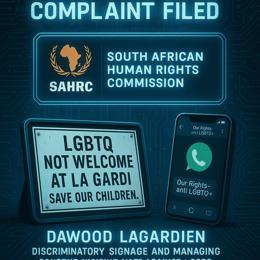Image created by AI
SCA Rules Human Rights Commission Findings Not Binding Without Court Enforcement
The Supreme Court of Appeal (SCA) in South Africa delivered a monumental judgment today, profoundly impacting the operations of the Human Rights Commission (HRC) and the manner in which its findings are treated in the legal sphere. In a case that pitted the HRC against AgroData, an agricultural company, the SCA ruled that the HRC's findings and directives, including those related to disputes over access to water, are not automatically enforceable and require the backing of a court to be enacted.
This judgment, welcomed by civil rights organization AfriForum, not only underscores the separation of powers between different institutions but also clarifies the HRC's role within the broader context of South Africa's constitutional democracy. According to Louis Boshoff, Campaign Officer at AfriForum, the maintenance of constitutional order is central to this ruling, highlighting that Chapter 9 institutions are designed to support constitutional democracy rather than usurp the role of the judiciary.
In a case born out of a 2016 dispute, residents of De Doorn Hoek farm in Mpumalanga claimed that AgroData unjustly restricted their access to borehole water. The HRC had initially sought to enforce its directives on the matter through the Mpumalanga High Court in Mbombela, but the court, in March 2022, held that while the HRC can make recommendations, it cannot universally impose binding directives. The HRC’s subsequent appeal to the SCA was motivated by a desire to overturn this decision.
The SCA’s unanimous ruling, which AfriForum participated in as amicus curiae, affirms that the provisions of Section 184(2)(b) of the Constitution do not grant the HRC the authority to issue binding remedial actions without the intervention of the courts. This landmark decision defines the limits of the HRC's powers and echoes the spirit of South Africa's constitutional checks and balances by ensuring that its findings are channeled properly through legal processes before being enforced.
This ruling possesses significant implications for all future proceedings involving the HRC, establishing a precedent that reinforces the necessity of legal processes in the implementation of the commission's recommendations. As such, entities faced with HRC findings will now regard court adjudication as a necessary step for any enforcement action.
Legal analysts and constitutional scholars alike will likely study this judgment for its clear articulation on the interaction between the HRC and judicial authority in South Africa. For those concerned about human rights and the enforcement thereof, this decision brings clarity to the mechanisms available for redress and emphasizes the role of the judiciary as the final arbiter of legal disputes.










